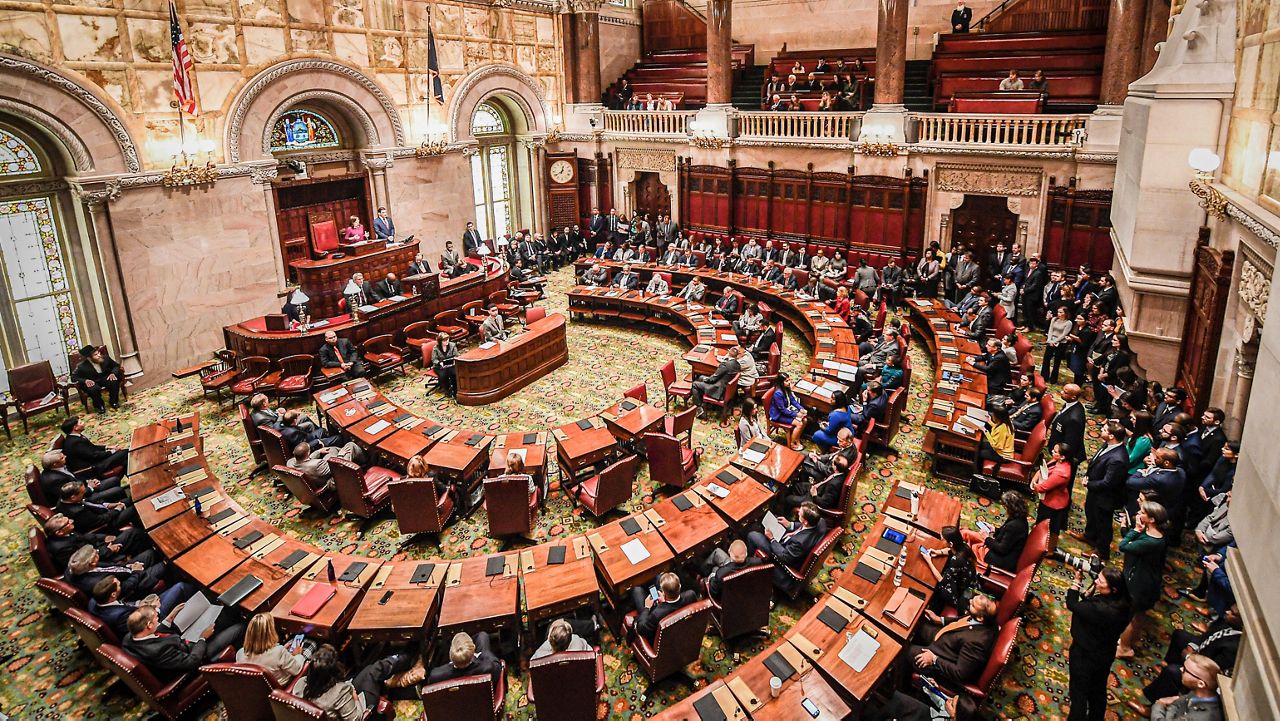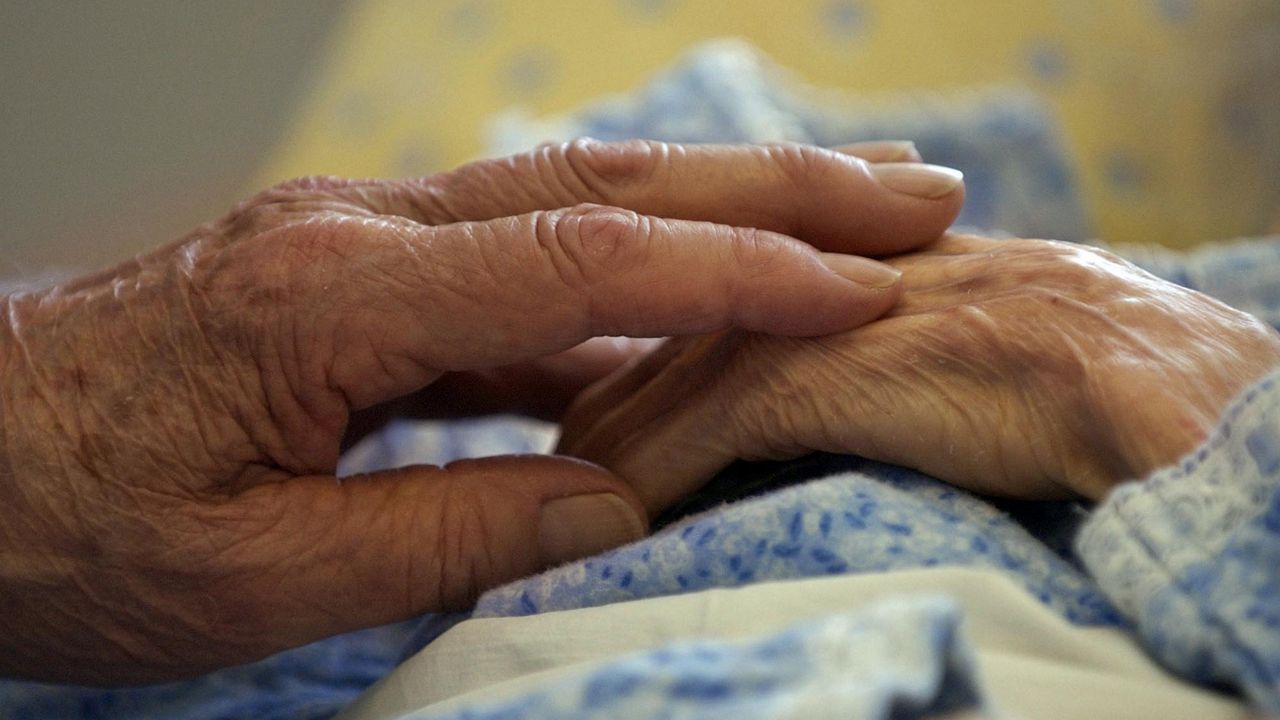State law could be changed next year to regulate who can send legal mail to incarcerated New Yorkers after prison staff told lawmakers people pose as attorneys and send letters with information to exacerbate the flow of illicit substances into state facilities.
Assembly Correction Committee chair Erik Dilan has visited several state prisons across New York since session ended in June — something state lawmakers are permitted do unannounced at any time.
"We have to figure out a way to address some things that we were not able to address in last year's budget," he said in the state Capitol on Tuesday.
While issues vary by facility, Dilan said the committee's top priorities next year include confronting the shortage of correction staff and closing a loophole with legal mail sent to incarcerated people, which has contributed to the amount of contraband brought into New York prisons.
Dilan said the state Department of Correction & Community Supervision is in talks with leaders from the state Bar Association to plan the best way to draft legislation and change who is permitted to send incarcerated New Yorkers legal mail.
Legal mail sent to state prisons is not allowed to be screened for content.
Staff at Mohawk Correctional facility, a medium-security prison in Central New York, told Dilan this summer that people who are not licensed attorneys send legal mail to the prison to smuggle in fentanyl and other contraband.
"They have mail coming in at Mohawk and I have to imagine it happens in the rest of the system," the assemblyman said.
Officials floated an idea to digitize legal mail sent to incarcerated New Yorkers to ensure the correspondence hails from a person's attorney, but that could pose significant privacy risks.
"It becomes issues that, you know, may or may not violate privacy, which everyone's entitled to with their attorney," Dilan said.
During his visits to state prisons this year, he also noted people in prison having reactions to the drugs or contraband they consumed, which he added lawmakers must address next session.
The conversation about contraband is continuing after state Inspector General Lucy Lang's office released a report last week showing more than 2,000 incarcerated New Yorkers were improperly disciplined after false positive drug tests for use of suspected contraband.
Prison staff also failed to verify test results, which led to hundreds of people losing visitation privileges, canceling their parole hearings or being held in solitary confinement housing.
"This was in the context of a surge in opiate use, both across the country and behind bars," Lang told Capital Tonight.
Lang says DOCCS chose that type of test to find substances that are hard to detect and control the flow of illegal substances into prisons.
“Illicit drugs pose a serious threat to the safety and security of those who work and live in correctional settings, and while the detection and removal of these substances is imperative, it must be done with accuracy and fairness,” DOCCS Acting Commissioner Daniel F. Martuscello III said in a statement when the report was released. “To that end, we reported the potential for false-positive field test results to the inspector general in 2020, resulting in the subsequent investigation and have since made improvements that align with the report’s recommendations."
The department no longer uses the drug test and has made improvements that meet her office's recommendations, which include enhanced training for everyone who administers drug testing within prisons.
"And that is really key to this," Lang said.
Senate Correction Committee chair Julia Salazar said the inspector general's report shows the urgency to implement consistent daily oversight of state prisons. The senator plans to push to pass her legislation next session to create an Office of the Correctional Ombudsman dedicated to the oversight of prisons and jails.
"While DOCCS complied afterward with the inspector general's advice to expunge the disciplinary records of incarcerated individuals who were wrongfully disciplined as a result of DOCCS' decisions, this does not undo the harm and trauma caused by the use of solitary confinement and other disciplinary methods that were used as consequence for the false positive drug tests," Salazar said Tuesday.
Salazar sponsored the HALT Act, which caps holding incarcerated New Yorkers from being held in segregated confinement housing for more than 15 consecutive days, or 20 days over a two-month period.
The senator said the Legislature will be monitoring to ensure HALT is fully implemented. NYCLU filed a civil action lawsuit against DOCCS earlier this year alleging the department is violating the law.
A handful of Democratic lawmakers last session said they'd be open to reviewing the HALT Act after female COs spoke out about increased incidents of sexual harassment and assault while on the job.
But Dilan said Tuesday it's too soon to judge the full impacts of the law, which took effect April 1, 2022.
The state correction officers union blames the HALT Act for an increase in violent incidents between incarcerated people and prison staff.
"Some folks may say it might be as a result of HALT, and it could be, but HALT is relatively only been in effect for a short period of time, so I don't know that HALT is directly responsible for the increase in violence," Dilan said. "But there's no doubt we can't ignore the numbers."
An increase of contraband drugs and weapons intensifies the risk and severity of violent incidents between incarcerated people and correction staff in facilities, according to DOCCS.
"The safety and well-being of staff and incarcerated individuals is the department's top priority," according to a statement from the department Tuesday. "The presence of contraband in correctional facilities exacerbates violence and enables illicit drug use."
The amount of contraband recovered by DOCCS has decreased in recent years, which the department credits to a vendor package program, use of the Office of Special Investigations K9 unit and prison staff photocopying incoming mail for incarcerated people — except in the Edgecombe Residential Transitional Facility — to stem the flow of illicit substances into state prisons.
The department peaked with 7,131 pieces of contraband in 2019, which has continued to decline since. DOCCS recovered 6,387 pieces of contraband in 2020, 5,314 in 2021 and 4,181 in 2022, according to the department.
DOCCS has recovered at least 3,811 pieces of contraband in state facilities this year as of Oct. 31.
"The results of the hard work by staff and the initiatives mentioned above have helped slow the amount of attempts to bring contraband into DOCCS correctional facilities," according to DOCCS.
Dilan also plans to float making tweaks to the state pension given to correction officers to boost recruitment, and push legislative leaders to include capital funding in the next budget to upgrade prisons to keep staff and people housed in the aging facilities safe.
The Legislature rejected Gov. Hochul's proposal included in her executive budget this year to reduce the minimum age a person can become a correction officer in New York to 19 years old down from 21. Dilan expects lawmakers to continue to stand against lowering the minimum age.
He added the state must expand educational and rehabilitation programs for people in prison.
Lang said some state prisons have up to 40% of their security staff out and receiving workers compensation at any given time, making it difficult to administer required programming intending to help incarcerated New Yorkers.
"Whether or not there is a causal link between increasing use of illicit substances in prisons and increasing violence amongst incarcerated populations, both of those issues need to be top-of-mind for prison administration, and our report highlights ways in which we think that they can improve in both of those areas," she said.








